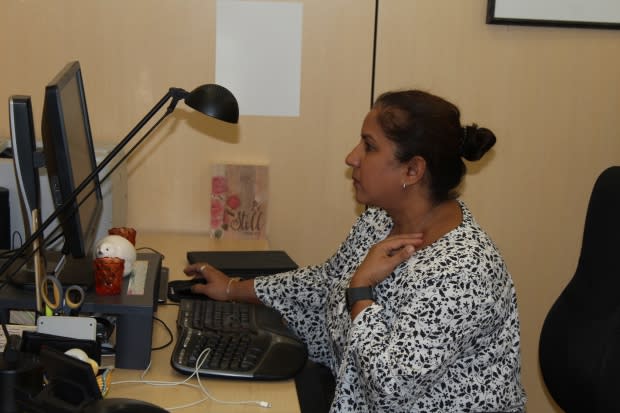Cannabis-induced psychosis on the rise in N.W.T. prior to legalization, says health dept.
Cannabis-induced psychosis in the N.W.T. has more than quadrupled over the past decade, with youth particularly at risk, according to numbers from the territory's health department.
The Department of Health began data on the hospitalizations in 2007. Statistics provided to CBC North show that between the 2007/2008 and 2011/2012 fiscal years, there were nine cases of people who had experienced cannabis-induced psychosis. Between 2012/2013 and 2016/2017, there were 44.
Youth aged 15 to 24 accounted for over 70 per cent of the total number of psychosis patients, the department said.
Dr. Kami Kandola, the territory's chief public health officer, said people who experience psychosis lose contact with reality and experience hallucinations. She said cannabis has been associated with an increased risk for psychosis, especially for teens whose families have a history of mental illness.

"Even though cannabis is legal, it's not necessarily safe," said Kandola. "We know there is a genetic predisposition to psychosis [for people whose families have a history of mental illness] and so we know that these people... when they smoke cannabis, it increases their risk for psychosis."
In some cases, if youth have a family history of mental illness, cannabis can speed up the time it takes for people to be affected, Kandola said. Cannabis can also "trigger a psychotic episode, anxiety or depression" for teens at risk.
Before legalization, Kandola said it was hard to collect data on cannabis use and its effects in Canada. Instead, the department turned to U.S. states which have legalized cannabis for more information.
Studies have shown that a majority of the public don't experience lasting mental health issues associated with the drug, she said, but added there is "a lot the department doesn't know" about cannabis.

Kandola didn't have a guess as to the effect of legalization on the number of cannabis-related hospitalizations in the N.W.T., but did say that it will open up the opportunity to conduct more research.
Treating cannabis-induced psychosis
The psychiatric ward at Stanton Territorial Hospital has partnered with the Arctic Indigenous Wellness Foundation to help treat people affected by psychosis through on-the-land wellness programming.
Donald Prince, the foundation's executive director, said he has personally come across people who have experienced mental illness triggered by drug use, including cannabis. He said that one way he was able to help them was by simply talking about their experience.
"For one thing, you can't fix somebody in an hour, or two hours," he said. "So what's the point of trying to get right down to [the problem]?
"What we try to do is build somebody up by looking at the good qualities in them... instead of talking about what a bad [person] they are."

A father of eight, Prince said he advises parents who believe their children could be at risk for serious mental illness from cannabis use to have a discussion.
"Pot these days is not exactly the pot from my days in the sixties," he said. "It's a lot stronger... a lot more dangerous in a way.
"Because it does affect people, especially if they are prone to having a mental disorder. The brain controls your body, your emotions and your thoughts. You start screwing with your brain, things are going to happen."
'More capacity' needed in small communities
Youth who grow up in the N.W.T.'s communities are twice as likely to be hospitalized for cannabis-related psychosis as those in Yellowknife, according to the statistics provided by the health department.
Prince said he believes that in smaller communities, medical personnel are jumping the gun on understanding what psychosis is. He said there needs to be more capacity for nurses and doctors to pass better judgment on what is and isn't mental illness.
"A lot of times, it's easier to diagnose someone and give them a pill rather than sit down and talk with them," he said, mentioning what happens to most people who are diagnosed.
"We have so many people who are schizophrenic who are falling off the healthcare system, because their contacts or their families don't know how to deal with that," said Prince.
"They've burned so many bridges. Now they're all alone, and they're homeless, and once they get to that part, then it's really hard to get them back."

